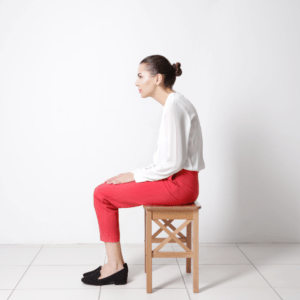As you know, an iron deficiency is when there isn’t enough iron in your body 😬, and this is also known as anemia. Every cell 🧫 in your body needs iron to fulfill its function, so you can imagine that the side effects of this condition can really affect your quality of life. The good news is that there are straightforward treatment options 👍, and things you can do to help yourself feel better quickly 🙌!
Signs and symptoms
By far the most noticeable symptom of iron deficiency anemia (and hardest to deal with) is extreme fatigue 🥱. We’re talking about feeling tired 😩 every minute of the day, no matter how much sleep you get. Some other symptoms include:
· Not being able to fall asleep no matter how tired you are as well as disrupted sleep. 😠
· Weakness – Your body doesn’t have the resources it needs to function properly!
· Pale skin and brittle nails.
· Heart palpitations, chest pain, or shortness of breath.
· Having a headache (this is more common in women), dizziness or light-headedness.
· Cold hands or feet. 🥶
· A strange feeling in your tongue which could be caused by inflammation or soreness.
· Unusual cravings for things like ice, dirt, or starch. 🧊
· A poor appetite. This is a common indicator in children of an iron deficiency.
· Inability to concentrate for long periods of time as your brain is not getting enough oxygen. You may also find yourself getting distracted easily.
· Changes in your mood such as depression and anxiety.
What does Iron Deficiency Anemia feel like?
Many of our patients at Inspired Health Chiropractic have told us that trying to live a normal life with iron deficiency anemia is very difficult. It feels like you’re constantly trudging through a swamp with a 10-pound bag on your back 😭. You will feel tired all the time, making it very difficult to get anything done. Focusing on one task, like work, is impossible to do. And you will find yourself needing regular naps, which could disrupt your daily routine.
What causes Iron Deficiency Anemia?
Two things cause anemia: either you’re losing iron, or your body is not absorbing iron. You could lose iron by having long and heavy menstrual periods or from blood loss associated with ulcers, for example. You may not be getting enough iron through the foods you eat, or your body might not absorb iron from your food.
Treatments
Iron deficiency anemia is not something you diagnose and treat yourself. Simply starting to take iron supplements is not necessarily going to treat or fix the problem and can be quite dangerous. If you think that you may have this condition, we urge you to see a doctor 👩⚕️.
To diagnose the condition, your doctor will run blood tests 💉 called iron studies. If your iron levels are indeed low, you will be given an oral medication 💊, usually with added vitamin C, to aid absorption. If you’re not feeling an improvement after a couple of weeks, there is also the option of IV iron infusions that are given to you via a drip in your arm – although this doesn’t sound too great, it works wonders. Testing for other conditions that can cause iron loss or absorption issues may also be performed i.e., checking for ulcers, or assessing issues with a menstrual cycle. It is important not to just treat the problem with more iron, but to also treat the underlying cause.
How to cope with Iron Deficiency Anemia?
Because you won’t be feeling great in general, it will be hard to do the things that usually come with ease, like working a full day 💻, making it through an entire exercise 🏃♀️ class or even picking up your children. Here is some practical advice for coping with an iron deficiency:
· Understand you are not going to be able to do as much as you usually do, and you will need to start being gentle with yourself 🤗.
· You may need extra rest so block out some time in your schedule to lie down 🛏 and take a break.
· Let people know. Tell your employer 📞 and family that you’re struggling at the moment and that you may need help tackling everyday tasks.
· Eat iron-rich foods. Stock up on leafy greens 🥬, red meat 🍖, seafood 🐟, beans, dried fruit, and oats. Also, eat regularly during the day to help keep your energy up.
· Light exercise 🚶♂️ every day will help. Don’t overdo it, particularly if you feel dizzy. But taking a walk every day will help fill your body with the oxygen it is lacking.
· If you are feeling down or depressed 😓 because of the deficiency, be sure to reach out for help and know that you are not alone ♥.
Preventing Iron Deficiency Anemia in children
Interestingly, iron deficiency anemia occurs quite often in small children and infants. The best way to prevent this is to feed your baby breastmilk or iron-fortified formula 🍼. Cow’s milk 🐄 isn’t a good source of iron for babies. After six months, iron-fortified cereals (watch out for too much sugar) and green leafy veg are a great source of iron.
How we can help
Although we can’t treat your iron deficiency specifically, we can support you by offering you a time-out (massage) and empowerment therapy if you are feeling low. If you’re interested in finding out how we can help, email us at admin@inspiredhealthchiropractic.com or click here to contact us.





